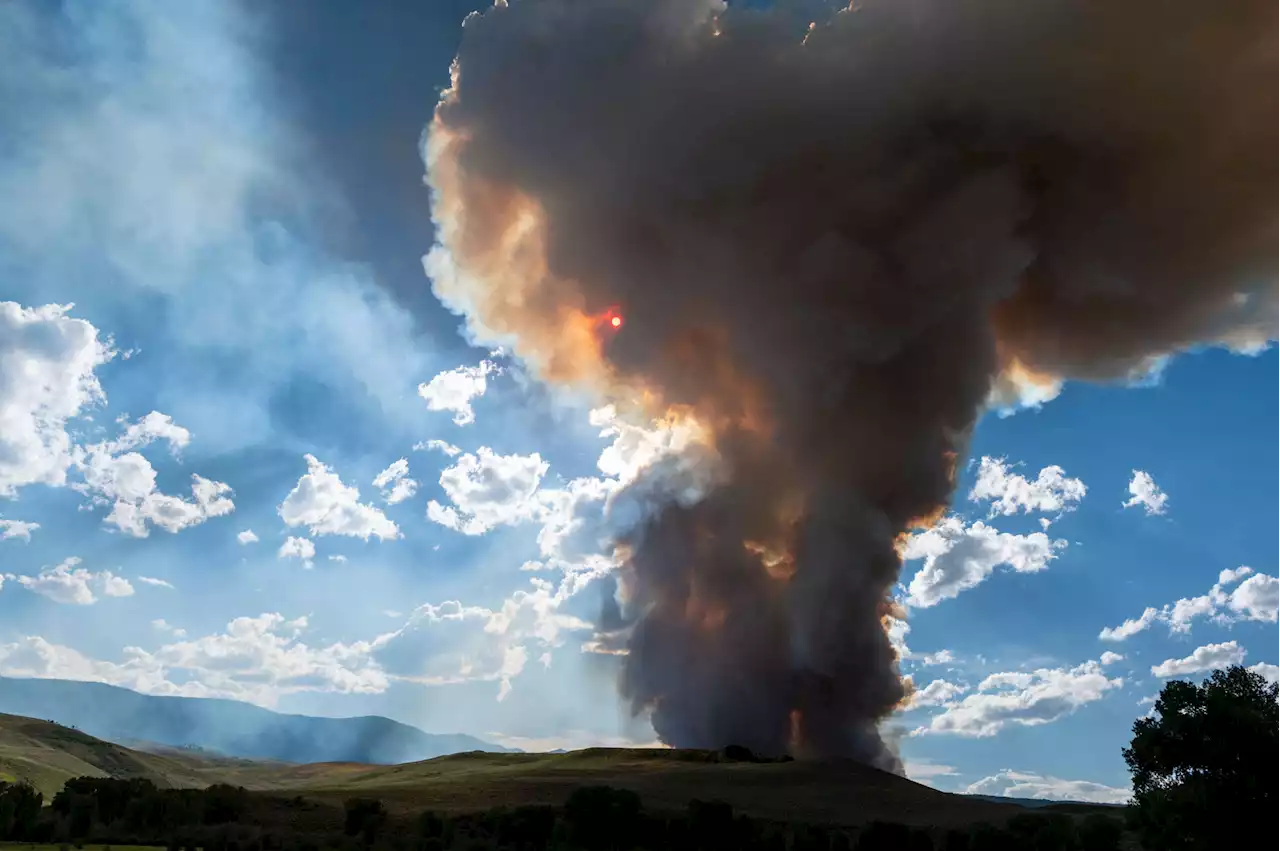Wildfire smoke continues to persist in the Bay Area, prompting the region's air quality regulators to extend the current Spare the Air alert into Saturday as local residents wonder when the skies will finally clear.
before yet another Spare the Air alert was called for Saturday at around 10:30 a.m.
The alert which bans burning wood, or manufactured fire logs in fireplaces, wood stoves and inserts, pellet stoves, outdoor fire pits, or any other wood-burning devices.The announcement of the extended alert noted that concentrations of particulate matter pollution are forecast to be unhealthy. High levels of particulate matter pollution are harmful to breathe, especially for young children, seniors and those with respiratory and heart conditions.
If people smell smoke, the district advises them to stay inside with windows and doors closed, and to set air conditioning units and car vent systems to recirculate to prevent outside air from coming inside. Among the wildfires that have smoke drifting south into the Bay Area are the Anvil Fire in Oregon, the SRF Lightning Complex Fire in Humboldt County, and the Smith River Complex Fire in Del Norte County.Air quality readings Friday morning were mostly in the orange"unhealthy for sensitive groups" range on the AQI scale across the Bay Area, with some locations registering in the red"unhealthy" range indicating an AQI of 150 or more.
In addition to staying inside with the doors and windows shut, people were advised to wear a mask if venturing outside and to stay hydrated during this period of poor air quality.
United States Latest News, United States Headlines
Similar News:You can also read news stories similar to this one that we have collected from other news sources.
 Lingering wildfire smoke from NorCal, Oregon fires prompts extension of Spare the Air alertOfficials with the Bay Area Air Quality Management District have extended a Spare the Air alert through Friday due to ongoing air quality issues caused by smoke from wildfires burning further north in California and southern Oregon.
Lingering wildfire smoke from NorCal, Oregon fires prompts extension of Spare the Air alertOfficials with the Bay Area Air Quality Management District have extended a Spare the Air alert through Friday due to ongoing air quality issues caused by smoke from wildfires burning further north in California and southern Oregon.
Read more »
 Lingering wildfire smoke prompts extension of Spare the Air alertThe Bay Area Air Quality Management District has extended a Spare the Air alert through Friday due to wildfire smoke that continues to linger in the region from fires burning further north in California and southern Oregon.
Lingering wildfire smoke prompts extension of Spare the Air alertThe Bay Area Air Quality Management District has extended a Spare the Air alert through Friday due to wildfire smoke that continues to linger in the region from fires burning further north in California and southern Oregon.
Read more »
 Spare the Air Alert extends through FridaySmoke lingers throughout Bay Area skies.
Spare the Air Alert extends through FridaySmoke lingers throughout Bay Area skies.
Read more »
 How wildfire smoke is erasing years of progress toward cleaning up America's airA new study finds that smoke from massive wildfires has eroded about a quarter of the air quality gains from the last few decades.
How wildfire smoke is erasing years of progress toward cleaning up America's airA new study finds that smoke from massive wildfires has eroded about a quarter of the air quality gains from the last few decades.
Read more »
 Worsening Wildfire Smoke Is Wiping Out Decades of Progress on Air PollutionClimate change and poor land management are key factors behind the increase in U.S. wildfire pollution.
Worsening Wildfire Smoke Is Wiping Out Decades of Progress on Air PollutionClimate change and poor land management are key factors behind the increase in U.S. wildfire pollution.
Read more »
 Wildfire smoke has undone roughly 25% of U.S. air quality improvements since 2000, study findsSince 2016, wildfire smoke in the U.S. has reversed roughly 25% of air quality improvements made from the 2000 Clean Air Act, according to a new study published in the journal Nature. That figure doubles to roughly 50% when looking specifically at the impact on many western states. For more on this, CBS News was joined by Marshall Burke, an associate professor at Stanford's Doerr School of Sustainability and a co-author of the study.
Wildfire smoke has undone roughly 25% of U.S. air quality improvements since 2000, study findsSince 2016, wildfire smoke in the U.S. has reversed roughly 25% of air quality improvements made from the 2000 Clean Air Act, according to a new study published in the journal Nature. That figure doubles to roughly 50% when looking specifically at the impact on many western states. For more on this, CBS News was joined by Marshall Burke, an associate professor at Stanford's Doerr School of Sustainability and a co-author of the study.
Read more »
